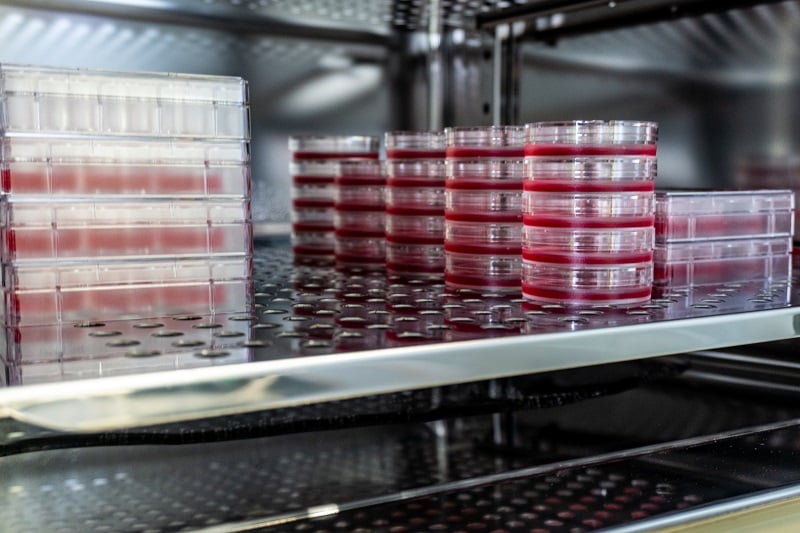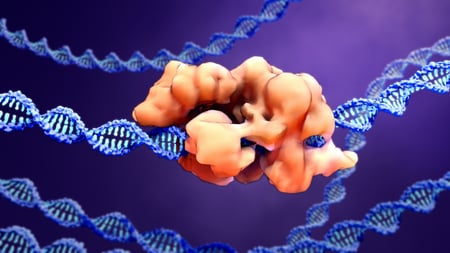Many stem cell companies do not offer a comprehensive range of products and services, leaving you to coordinate projects with multiple providers. Using a single supplier that can fulfill all of your research needs, therefore, minimizes paperwork and simplifies logistics. At REPROCELL, we provide a broad range of stem cell services, so that you can achieve high-quality data with the least amount of hassle.
Watch our explainer video below to find out more about the end-to-end services we offer.
iPSC Reprogramming
If you are lacking the resources to generate induced pluripotent stem cells (iPSCs) in-house, our scientists can provide high-quality iPSCs for your research. Whether you already have tissues that require reprogramming or wish to source samples from select patients, our scientists can generate iPSCs from a wide range of sources.
StemRNA™ Reprogramming Technology is our method of choice because it is the most rapid, non-integrative reprogramming methodology on the market1. This technology has been used across a diverse range of projects in the research community, allowing the generation of iPSCs from blood, skin, dental pulp, and urine.
Our clients normally use human biospecimens as starting material, but other options are possible including alternative species, tissues, and cell lines: see our research stem cell services and clinical stem cell services.
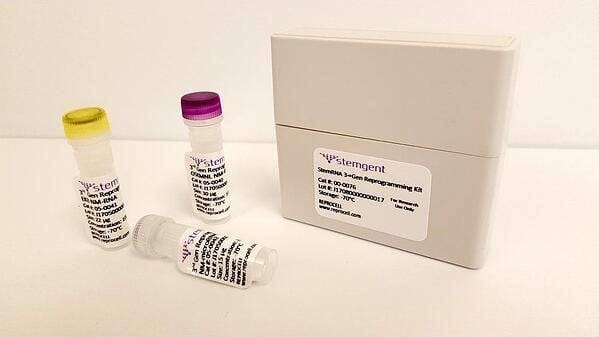
Neuronal Differentiation
Interested in sourcing clinically relevant models for your neurodegenerative disease research, but unsure where to start? Our experts can generate functional, human neurons to accelerate the development of your therapeutics. By reprogramming somatic cells obtained from the target population, our experts can produce mature neurons that are highly relevant to your research. We use a range of quality checks to ensure the functionality and clinical-translatability of these neurons, including multi-electrode array (MEA) assay. You can find a complete case study detailing model development from tissue procurement to maturation here.
The four key neuronal types we can differentiate from iPSC include dopaminergic, motor, and sensory neurons, plus astrocytes. We are willing to explore inspiring R&D projects using other cell types, so it is always worth inquiring if you don't see your cell type listed. If you would like more information on our neurodegenerative disease modeling services, please visit our page on research iPSC neuronal differentiation.
%3B%20GFAP%20(red)%3B%20DAPI%20(blue).jpg?width=800&name=Tuj1%20(green)%3B%20GFAP%20(red)%3B%20DAPI%20(blue).jpg)
StemEdit Genome Editing
Most genome editing companies specialize in knock-out modifications and don't have the experience to fulfill more complicated genetic edits. Our AI-driven genome editing system, StemEdit, was designed with multiple types of modifications in mind. So if you are considering SNP, multiplex knock-ins, or GFP tagging, we have the expertise and experience for your genome editing needs.
Each project includes an isogenic control to explore the effect of your chosen mutation on disease phenotype, assist in the identification of novel test agents, and provide a control line for the assessment of drugs tested in your custom model system. You can find more information on our StemEdit Genome Editing projects here.
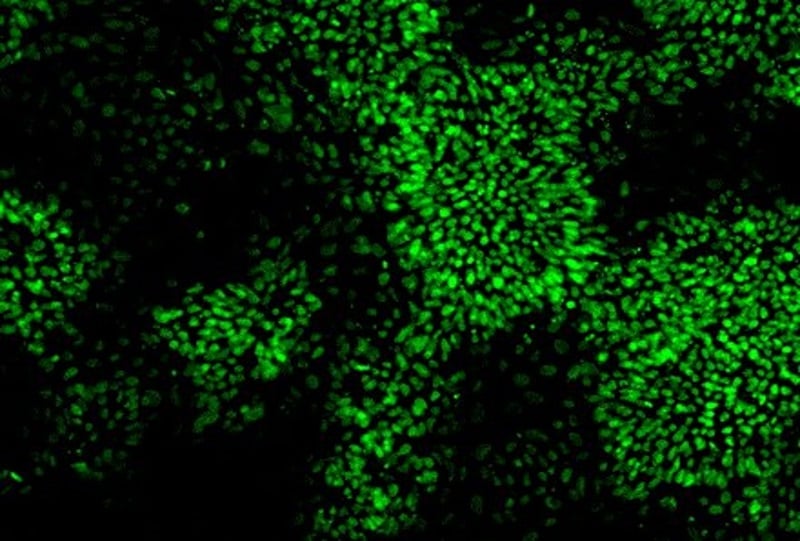
Complimentary Stem Cell Services
At REPROCELL, you don't have to sign up for one of our larger studies to benefit from our range of iPSC services. All of our stem cell projects are milestone-based, meaning we can tailor any project to your unique research needs and budget. If you are looking to complement your own iPSC research, we offer a diverse range of options described below.
Donor screening and tissue procurement
Accessing relevant clinical material from human patients is usually challenging. If you cannot locate primary tissues for reprogramming, we can ethically source them for you. With over 25 years of experience in the biobank sector, we operate an extensive human tissue network that includes access to donor medical histories. Our laboratory team is available 24 hours a day for tissue procurement so that we can guarantee the highest-quality samples for your research. More information about our tissue procurement services is available in our human tissue samples catalog.
Primary cell isolation
If you have procured relevant tissue from your target population but cannot isolate the primary cells, our scientists can isolate single-cell populations for reprogramming. We can derive these cells from a range of biological materials, including donor skin, blood, and even urine.
iPSC Expansion and Characterization
If you are interested in having your cells characterized to confirm their authenticity, REPROCELL has characterized over 100 iPSC lines from a variety of human clinical samples. We provide two broad categories of iPSC characterization services, including:
- Immunocytochemistry (ICC)
We can broadly characterize your iPSC line for the expression of key pluripotency markers such as Nanog, Oct4, SSEA-4, and others. Our labs have high-resolution microscopy and imaging capabilities to provide you with convincing data and quality ICC images. - Genetic Analysis
Examination of the genetic integrity of both primary cell lines and derived iPSC lines is useful for the verification of authenticity and normality. Various levels of genetic analysis can be performed by our experts, including gross karyology, copy number variation (CNV), and RNA Seq analysis.
Cell Line Expansion, Cryo-preservation, and banking
- Feeder-Free Culture
REPROCELL uses a variety of feeder-free media for iPSC maintenance and expansion, including Nutristem. These are devoid of animal components (xeno-free), so that you can be assured of their safety and regulatory compliance. - Feeder-Dependant Culture
iPSC health on feeders, especially in our Primate ES Cell Culture Medium, is hard to rival. If your cells are currently feeder-dependent, or you simply want to expand and cryopreserve your cells using feeder-dependent cultures, we can accommodate your request. - Cryopreservation Media
Classic cryopreservation medium contains additives, such as dimethyl sulfoxide (DMSO), which are potential mutagens. REPROCELL uses a DMSO-free option, NutriFreez D10, which is manufactured under cGMP. - Cell Banking Services
If you want to safeguard your samples by storing them at a secondary location, REPROCELL has decades of experience with liquid nitrogen storage facilities. Please inquire if you are interested in storing your iPSCs at a secondary location.
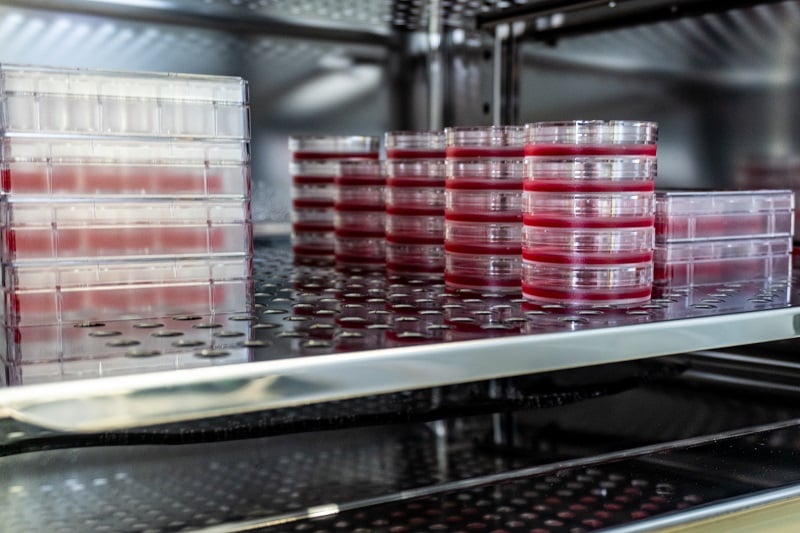
End-to-end iPSC research services
With over 50 iPSC experts across three continents, you can trust our scientists to deliver the results you need. Our Primate ES Media was used by Professor Shinya Yamanaka to make the very first human-induced pluripotent stem cells (iPSCs)2, and we have worked with almost all the top pharma companies worldwide. Find out what is included in our custom stem cell research projects here.
Further reading
- Schlaeger, T., Daheron, L., Brickler, T. et al. A comparison of non-integrating reprogramming methods. Nat Biotechnol 33, 58–63 (2015).
- Takahashi, K., Tanabe, K., Ohnuki, M., Narita, M., Ichisaka, T., Tomoda, K., & Yamanaka, S. (2007). Induction of pluripotent stem cells from adult human fibroblasts by defined factors. Cell, 131(5), 861–872.
Note: The modified cells are developed, manufactured or supplied by GenAhead Bio Inc. under license from ERS Genomics Limited.
